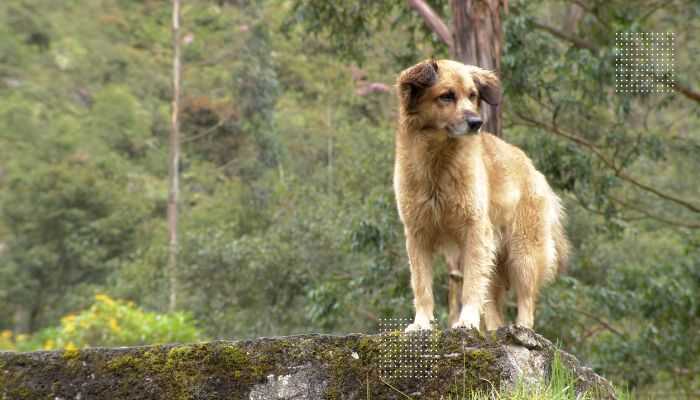
Dogs are often considered to be a beloved member of the family, providing companionship, protection, and unconditional love. However, it’s important to remember that dogs are descendants of wolves and have the ability to survive in the wild.
This raises the question: can dogs survive in the wild, and what does it take for them to thrive? In this article, we will explore their ability to survive in the wild, and what factors affect their chances of survival.
We’ll also discuss what to do if your dog goes missing and ends up lost in the wild. Whether you’re a dog owner or simply interested in the wild instincts of our canine companions, this article will provide valuable insights into the resilience and adaptability of dogs.
Table of Contents
So Can dogs survive in the wild?
It’s possible for dogs to survive in the wild, especially if they have some of the characteristics and skills that wolves possess. These include the ability to find food and shelter, the ability to defend themselves against predators, and the ability to adapt to changing environments. Some dogs, such as stray dogs or feral dogs, may have more experience surviving in the wild than domesticated pets.
However, it’s important to note that dogs are domesticated animals and may not have the same skills and abilities as their wild counterparts. This means that it may be more challenging for them to survive in the wild, especially if they are not used to finding food and shelter on their own.
It’s also important to consider that the environment in which a dog is lost can play a significant role in their chances of survival. For example, a dog that is lost in a densely populated urban area may have an easier time finding food and shelter than a dog that is lost in a remote, rural area.
Ultimately, a dog’s ability to survive in the wild will depend on a variety of factors, including their breed, age, health, and the environment in which they are lost.
Factors that affect a dog’s ability to survive in the wild
There are several factors that can affect a dog’s ability to survive in the wild. These include:
Breed: Some breeds, such as sled dogs and hunting dogs, are better equipped to survive in the wild due to their physical characteristics and training. These breeds may be more adaptable to harsh conditions, have a stronger drive to find food and shelter, and be more resistant to disease.
Age: Younger dogs may have an easier time adapting to the wild, as they may be more physically fit and have a stronger drive to survive. Older dogs, on the other hand, may not have the same level of physical endurance and may be more prone to health issues, which can affect their chances of survival.
Health: A dog’s health can also play a role in their ability to survive in the wild. Dogs that are in good physical shape and do not have any underlying health conditions may have a better chance of surviving. On the other hand, dogs that are obese or have chronic health conditions may be more susceptible to illness and may have a harder time finding food and shelter in the wild.
It’s important to consider these factors when evaluating a dog’s chances of survival in the wild. By understanding the strengths and limitations of your dog, you can take steps to protect them and increase their chances of survival if they ever find themselves lost in the wild.
What to do if your dog gets lost in the wild
If your dog goes missing and you suspect they may be lost in the wild, it’s important to act quickly. Here are some steps you can take to try and locate your dog:
Search the area thoroughly: Look for any signs of your dog, such as footprints, barking, or other noises. Leave a trail of familiar items, such as your dog’s bed or toys, to help them find their way home.
Contact local animal shelters, vet clinics, and rescue organizations: These organizations may have information about lost dogs in the area and may be able to help reunite you with your pet.
Utilize social media and online resources: Create a post on social media or use websites like lostmydoggie.com to reach a wider audience and increase the chances of finding your dog.
Have your dog microchipped: Microchipping is a simple and effective way to identify your dog if they are found. Make sure to keep your contact information up to date so you can be notified if your dog is found.
If you’re unable to locate your dog after taking these steps, it’s important to remain hopeful and continue searching. It’s also a good idea to contact local animal control and wildlife agencies, as they may have additional resources and expertise to help locate your lost dog.
Conclusion
In conclusion, it’s possible for dogs to survive in the wild, especially if they have some of the characteristics and skills that wolves possess.
However, it’s important to remember that dogs are domesticated animals and may not have the same skills and abilities as their wild counterparts. If you’re concerned about your dog’s ability to survive in the wild, it’s important to take steps to protect them, such as keeping them on a leash and ensuring they have identification tags. However, if your dog does find themselves lost in the wild, there are steps you can take to help them reunite with you safely.
By searching the area, contacting local organizations, and utilizing social media and online resources, you can increase the chances of finding your lost dog. It’s also a good idea to have your dog microchipped, as this can help identify them if they are found.
Ultimately, by understanding the resilience and adaptability of dogs, we can better protect and care for our beloved canine companions.
